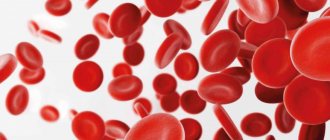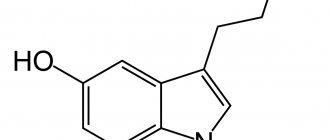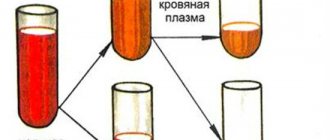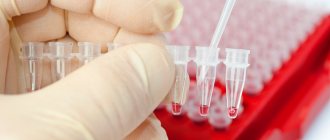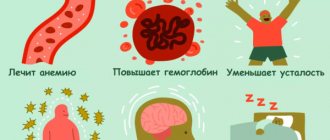Complexes with this research
Anti-aging diagnostics in postmenopause Control of age-related changes during postmenopause 12,630 ₽ Composition
Female infertility Analysis of women's reproductive health 16,210 ₽ Composition
Three important indicators for a man Diagnosis of problems of the reproductive system RUB 1,810 Composition
IN OTHER COMPLEXES
- Preventative check-up RUB 11,960
- Women's anti-aging diagnostics RUB 12,070
- Adrenogenital complex RUB 2,560
- Advanced anti-aging diagnostics in postmenopause RUB 29,230
- Advanced women's anti-aging diagnostics RUB 28,680
Hormone content standards
Standard values may vary between laboratories. The analysis must be deciphered by the medical institution that performed the analysis. Average cortisol data depend on the patient’s age and are measured in nmol/l:
- in children under 10 years old – from 28 to 1049;
- from 10 to 14 years – from 55 to 690;
- from 14 to 16 years old – from 28 to 856;
- teenagers after 16 years – from 138 to 635 units.
Hormone concentrations may differ at different times of the day. The highest values are recorded in the morning, then cortisol levels drop and return to peak maximum parameters between 18 and 23 hours. In pregnant women, indicators can exceed standard values by 2-5 times, which is normal and not a sign of pathology.
Detailed description of the study
Cortisol is the main hormone of the adrenal cortex, which is called the “stress hormone”. It is produced by the adrenal glands in stressful situations to improve brain function, support the nervous system and stimulate the heart.
Cortisol regulates metabolic processes, promotes the formation of glycogen and its deposition, stimulates the breakdown of fats and can increase the level of cholesterol and lipids in the blood. This hormone is necessary to maintain all systems in the human body and regulate its daily rhythms. With an excessive amount of cortisol, the production of sleep hormones, melatonin and serotonin decreases, sodium retention in the body, edema and hypokalemia is observed, internal organs suffer: adrenal glands, liver, heart and kidneys.
Cortisol enhances the vasoconstrictor effect of other hormones and increases the volume of urine excreted per day.
Cortisol has an anti-inflammatory effect, affects cellular and humoral immunity and reduces the body's susceptibility to harmful agents.
Changes in the concentration of cortisol in the blood depend on the functional activity of the adrenal glands and the state of the pituitary gland. The formation of cortisol is regulated by ACTH, the adrenocorticotropic hormone of the pituitary gland, according to the feedback principle: a decrease in cortisol levels leads to an increase in the production of ACTH. Adrenocorticotropic hormone, in turn, stimulates the production of cortisol in the adrenal glands. When cortisol levels normalize, ACTH production decreases.
An increase in cortisol levels in the body can be suspected in patients with obesity, arterial hypertension and high blood sugar. Cortisol deficiency can manifest itself as increased fatigue, weakness, apathy and weight loss.
Indicators for verification
Checking the level of hormonal substances in the female body is prescribed:
- to monitor pregnancy;
- identifying the source of disturbances in the menstrual cycle - with oligomenorrhea;
- registration of early puberty in teenage girls;
- determining the causes of abnormal body hair growth.
General indications for identifying indicators of hormonal balance are presented:
- pathological processes in bone tissue, including osteoporosis;
- the appearance of pigment spots in the area of skin folds, on the mucous membrane, areas of contact of the dermis with clothing or in open areas;
- development of colorless spots on the skin – depigmentation;
- bronze color of the dermis - a symptom of Addison's disease;
- stripes of red or purple hue that occur with Cushing's disease;
- muscle weakness – if the problem continues for a long time;
- acne in adult patients;
- weight loss without good reason.
Cortisol testing may be prescribed if blood pressure is elevated and the cardiovascular system is functioning normally.
Root Causes of High Cortisol
An increase in the hormone in the bloodstream can be caused by excessive activity of the adrenal glands. In some cases, upward changes are created artificially, using medications. Medicines are used to treat pathological processes not associated with damage to the adrenal glands or endocrine department.
If independent production of cortisol by the body is noted, the patient undergoes a diagnostic examination for the presence of the following diseases:
- Itsenko-Cushing's disease;
- insufficient production of ACHT and pituitary dysfunction - a deviation can occur with regular use of artificial hormone substitutes or its additional production by abnormal cells;
- pathological processes in the adrenal glands caused by benign or malignant neoplasms (carcinoma, adenoma) or tissue proliferation.
The functional type of increase in cortisol is provoked by:
- period of pregnancy and breastfeeding;
- puberty;
- depressive and stressful conditions;
- cirrhosis, hepatitis, liver failure;
- ovarian cysts.
The pathological condition is observed in overweight or underweight people suffering from chronic alcohol dependence.
Diagnostics and treatment of stress hormones at Altimed MC
To find out what caused the increase in hormones, it is necessary to undergo a complete diagnosis of the body. This can be done quickly and painlessly here at Altimed MC. We use our own equipment for a complete diagnosis of the body.
Functional screening helps measure stress-related cortisol levels , as well as vitamin and mineral levels. With its help, you can get a complete picture of the functioning of the entire organism.
ATM Vega Test reveals hidden diseases, helps determine their severity and understand what caused them. Based on the results obtained, our specialists can create an effective treatment plan, the results of which you will notice in the first days.
Where to get tested
The network of medical centers and laboratory terminals of SZTsDM JSC covers St. Petersburg, Novgorod, the Leningrad region, Kaliningrad, Pskov.
To find the branch closest to you, use the drop-down menu on the top bar, interactive map or table. In the menu and on the map, you can click on the selected object - and you will receive complete information about the location, hours and days of reception. The map can be opened in YandexMaps to conveniently calculate the route.
In any department you will be greeted by qualified and attentive staff, sterile cleanliness, and you will be provided with a modern level of service and diagnostics.
We invite you to undergo research on the level of adrenal hormones at SZTSDM!
Remember that early detection of a problem is the key to complete and rapid success in identifying it. Be healthy!
Symptoms of excess and deficiency of cortisol
Not only a person’s hormonal health, but also the normal functioning of the entire body depends on the proper functioning of the adrenal glands and the concentration of cortisol.
Cortisol: symptoms that may indicate excess:
- A specific type of obesity in which fat is deposited mainly on the torso (shoulders, back, stomach), while the arms and legs appear thin;
- Persistent increase in blood pressure (when more obvious causes are excluded);
- Loss of muscle mass combined with the appearance of stretch marks (striae).
Note that increased cortisol can be associated with both obesity and weight loss. It's not a mistake. Cortisol stimulates the breakdown of muscle tissue and at the same time changes the process of fat deposition. Different symptoms may predominate in different people.
Symptoms of cortisol deficiency:
- Bronze skin color;
- Constant weakness and fatigue;
- Persistent decrease in pressure;
- Autoimmune diseases.
The causes of impaired cortisol production are usually associated with diseases of the adrenal glands. They are diagnosed and treated by an endocrinologist.
References
- Yudina, T.Yu., Basenko, N.V., Ustinova, N.V. etc. Advantages of determining cortisol in saliva for identifying initial dysfunctions of the adrenal glands and pituitary gland. Healthcare of the Far East, 2019. - No. 2(80). — P. 38-40.
- Druzhkova, T.A., Pochigaeva, K.I., Gekht, A.B. et al. Assessment of free cortisol in saliva: correlation with serum cortisol in patients with depressive disorders. Neurochemistry, 2015. - No. 4. - P. 334.
- Goncharov, N.P., Kaimya, G.V., Marova, E.I. et al. Use of an ultrasensitive method for determining biologically active free cortisol in saliva to assess the glucocorticoid function of the adrenal cortex. Problems of endocrinology, 2008. - No. 3. - P. 27-35.
- Blair, J., Adaway, J., Keevil, B. et al. Salivary cortisol and cortisone in the clinical setting. Current opinion inendocrinology, diabetes and obesity, 2021. - Vol. 24(3). — P. 161-168.
Causes of abnormal cortisol levels
Changes in hormone levels can be provoked by:
- amphetamines;
- vasopressin;
- hormonal contraceptives;
- interferon;
- corticotropin;
- metoclopramide;
- methoxamine;
- naloxone;
- nicotine;
- estrogen;
- ethanol
Increased concentration is recorded with excessive consumption of alcohol and tobacco products. A reduced amount of cortisol occurs due to the presence in the body of:
- barbiturates;
- dexamethasone;
- ketoconazole;
- levodopa;
- lithium-based drugs;
- morphine;
- nitrogen oxides;
- magnesium sulfate;
- triamcinolone;
- ephedrine.
When changes in hormonal balance are detected, the search for the source of dysfunction begins.
If there is a lot of cortisol
You are said to have high cortisol if:
- Cortisol is elevated in the morning;
- In the morning, cortisol is within normal limits, but there is no natural decrease in the evening.
Excess cortisol can cause:
- Obesity and inability to lose weight;
- Metabolic disorders;
- Skin problems: acne and acne;
- Persistent high blood pressure;
- Secondary immunodeficiency.
Despite the fact that cortisol reduces the inflammatory response, it has a suppressive effect on lymphopoiesis - the process of creating new immune cells, and the constant mobilization of the body's reserves leads to their depletion.
In order to determine the cause of the increase in cortisol, the doctor evaluates the totality of symptoms, the patient’s appearance and the results of laboratory diagnostics.
Dehydroepiandrosterone
Dehydroepiandrosterone (DHEA) is a precursor hormone to testosterone and estradiol. It is produced from cholesterol in the outer layer of the adrenal glands and circulates in the blood, attaching to sulfur in the form of dehydroepiandrosterone sulfate to prevent the breakdown of the hormone.
In women, dehydroepiandrosterone is an important source of estrogens in the body: it provides about 75% of estrogens before menopause and 100% of estrogens in the body after menopause.
Recent scientific research shows that DHEA improves insulin sensitivity, cellular immunity, bone metabolism, sexual function, physical strength, neuroprotection, cognitive function and memory. Normal hormone secretion also means a young, healthy, attractive appearance of a man and woman, their sexual attractiveness and activity.
With age, the level of the hormone decreases - this is taken into account in the study.
Reasons for changes in dehydroepiandrosterone levels:
- benign and malignant tumors of the adrenal glands;
- adrenal hyperplasia;
- pituitary tumors;
- polycystic and other ovarian pathologies.
Consequences, symptoms of elevated levels of dehydroepiandrosterone:
- absence of menstruation;
- male pattern hair growth in women;
- lots of pimples;
- hair loss;
- problems with conceiving and bearing children;
- in men - baldness;
- in women - abnormally small breasts, enlarged Adam's apple;
- in children - early sexual development, including extremely early appearance of secondary sexual characteristics (hair) in the pubic area and under the arms.
Consequences, symptoms of low levels of dehydroepiandrosterone:
- diabetes;
- dementia;
- low sexual desire or its complete absence;
- osteoporosis, weakened bones;
- lupus;
- chronic fatigue syndrome;
- pathological decrease in immunity.
How to submit biomaterial and prepare for research
Venous blood is donated for testing. 2 hours before blood sampling, do not smoke or eat; if necessary, you can drink clean water without gas.
In 2 days - after consultation with a doctor! - do not take steroid or thyroid hormones; if possible, avoid physical and psycho-emotional stress.
Aldosterone
Aldosterone is a steroid hormone. Its main function is to regulate salt and water levels in the body, whose levels directly affect blood pressure.
The hormone acts on the kidneys and colon, increasing the amount of sodium reabsorbed into the bloodstream and sodium excreted in the urine. Aldosterone causes the reabsorption (reabsorption) of water along with sodium, which increases blood volume and with it blood pressure.
Aldosterone is part of the renin-angiotensin-aldosterone group of related hormones. The system is activated if blood flow to the kidneys decreases. Aldosterone increases the reabsorption of salt and water from the kidneys into the bloodstream, thereby increasing blood volume, restoring salt levels and blood pressure.
Reasons for changes in aldosterone levels
The most common cause of high hormone levels is overproduction caused by primary hyperaldosteronism (Conn's syndrome). The syndrome develops against the background of diffuse edema, adrenal hyperplasia or a small, always benign tumor in the gland (adrenal adenoma). Sometimes hyperaldosteronism is a hereditary disease.
Consequences, symptoms of elevated aldosterone levels:
- an increase in blood volume above normal;
- low level of potassium in the blood (about 1/3 of subjects with hyperaldosteronism);
- high blood pressure - in this case it does not respond to several drugs to regulate blood pressure;
- in some cases - convulsions, severe thirst, weakness.
Consequences, symptoms of low aldosterone levels:
- decreased blood pressure;
- lethargy;
- increased potassium levels in the blood.
Aldosterone levels for people over 15 years of age (not established for children and adolescents):
- 22.1 – 353 pg/ml in a vertical position;
- 2.8 – 39.9 µIU/ml in a horizontal position;
- less than 12 pg/μIU—aldosterone-renin ratio (ARR).
The Russian Association of Endocrinologists recommends diagnosing primary hyperaldosteronism when APC ≥ 50; in international practice - with APC ≥ 30.
To confirm the diagnosis, a repeat study is required, since there are many factors that lead to false positive and false negative results. Among them are hyperkalemia, drug effects, renal failure, hypokalemia, pregnancy and others.
How to submit biomaterial and prepare for research
Approximately 2 weeks to a month before the study, you need to adhere to a low-carbohydrate diet, do not take diuretics, antihypertensive drugs (after consultation with a doctor), oral contraceptives, steroid drugs, estrogens.
A week before the study, stop taking renin inhibitors. In 3 days, physical and psycho-emotional stress is eliminated. And 3 hours before donating blood you need to refrain from smoking.
